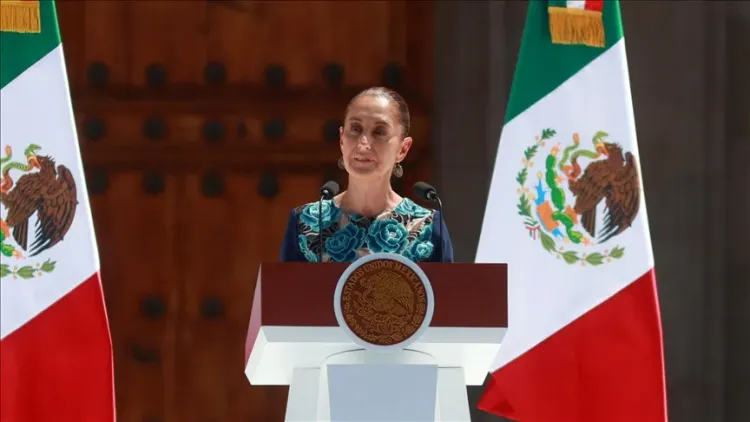Will Sheinbaum's Confidence Lead to a Quick Reopening of the US-Mexico Border for Cattle?

Synopsis
Key Takeaways
- President Sheinbaum is confident about the reopening of the border.
- The US has halted cattle imports due to screwworm detection.
- A sterile fly production plant will be established in Chiapas.
- The US will invest 21 million US dollars for this initiative.
- The CNA supports the agreements made between the US and Mexico.
Mexico City, May 29 (NationPress) The President of Mexico, Claudia Sheinbaum, is optimistic that the United States will reopen its border for Mexican cattle exports "very soon," following recent bilateral agreements aimed at controlling the spread of screwworm.
The United States Department of Agriculture announced on May 12 that it would halt cattle imports from Mexico for a period of 15 days after detecting the pest; however, the prohibition is still ongoing, as reported by Xinhua news agency.
During her daily morning press briefing at the National Palace, the President stated, "We hope it will be very soon," in reference to the resumption of cattle exports.
Sheinbaum noted that a delegation from the U.S. Department of Agriculture is scheduled to visit Mexico to "verify the work plan already reviewed by technical committees," which includes the establishment of a sterile fly production facility in the southern state of Chiapas to help "eliminate the screwworm infestation."
"A technical agreement is already in place; they will come to confirm it. This facility will be set up, and we anticipate that shortly thereafter, the border will reopen," Sheinbaum emphasized, highlighting that "the crucial point is that agreements are already established."
The President confirmed that the United States is set to provide 21 million US dollars for the creation of the sterile fly production plant in Chiapas.
"This essentially covers the necessary funding," Sheinbaum mentioned, dismissing the need for any additional support from her administration.
On Wednesday, Mexico's National Agricultural Council (CNA) expressed its approval of both parties' commitment to advance an agreement and conveyed optimism about the imminent resumption of Mexican cattle exports to the United States.
"The CNA applauds the technical and political determination of both governments to forge ahead with a science-based, collaborative agreement built on mutual trust, and is hopeful that the reopening of border crossings for Mexican livestock will be formalized in the near future," the organization stated.
"This decision will restore balance, alleviate the burden on producers, and ensure stability for the livestock value chain within the framework of the United States-Mexico-Canada Agreement (USMCA) on free trade," the group concluded.









